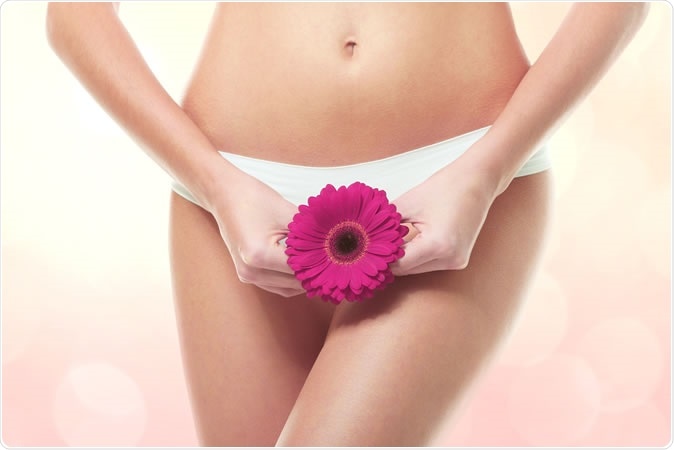A new research article published in the Journal of Women's Health indicates dangerous levels of volatile organic compounds (VOCs) in the blood of women using feminine hygiene products (FHPs). The most strongly linked products are feminine powder and vaginal douching products.

Image Credit: Africa Studio / Shutterstock
The study
VOC exposure in the US occurs both indoor and outdoors, because they are found in numerous commonly used products. These include cosmetics, fragrances, air fresheners, fuels, and FHPs. These can be absorbed into the body through the skin, inhalation or ingestion. Some VOCs can cause acute neurological or respiratory system poisoning, cancers, and reproductive effects. For instance, 1,4-dichlorobenzene (1,4 DCB) is linked to human cancer, miscarriages, fetal malformations, and menstrual disturbances. This chemical can persist in the air for over a month. Ethylbenzene is also known to damage the nervous system.
The most common hygiene products include sanitary napkins, tampons, sprays, wipes and vaginal douches. Research by the group Women’s Voices for Earth (WVE) showed that styrene, chloromethane, and chloroform are among the chemicals emitted by sanitary pads.
In the present study, FHPs were chosen as the route of exposure because of these findings, as well as knowing that these products may be used multiple times daily. The vagina is a highly absorptive area, moreover, with a very large surface area and high vascular supply. This can lead to unexpectedly high exposures to VOCs from FHPs.
The study was carried out on data obtained on over 2,400 women aged 20-49 years, retrieved from the National Health and Nutrition Examination Survey (NHANES) 2001–2004. The mean age was about 35 years, though the Mexican-American subgroup had a lower average age and education status. Non-Hispanic blacks were heavier with their BMI being over the average, at 31. Both these groups were more likely to be poor. Black women also had a greater chance of undergoing surgery for removal of the uterus or the ovaries before menopause naturally occurred. Other ethnic minorities also tended to be premenopausal.
The use of FHPs was assessed using self-reporting via questionnaires. Blood testing was also done on about a third of these women to measure whole blood concentrations of VOCs. Finally, 8 VOCs were chosen for analysis, as being found in at least 50% of the tested samples.
The results
Vaginal douching is more common among black women, and the frequency of vaginal douching in the last 6 months is linked to higher concentrations of 1,4-dichlorobenzene (DCB) in the whole blood. The increase in 1, 4 DCB concentrations in women who used douching once or fewer times a month was 18% compared to 81% in the four percent who used it twice or oftener a month. However, of this 4%, almost 60% were black.
Similarly, the use of feminine powder once or more in the last month is linked to 36% higher blood levels of ethylbenzene.
The next research question is whether the VOCs come from these products or from other activities that are more frequently carried out in this group of people. And even more importantly, it is necessary to clarify what effect these chemical exposures have on women’s health. Finally, the question of regulation arises, since few or even none of these products are required to carry a complete ingredient and manufacturing byproduct list. There is no safety information on most of these products.
The report concludes, “Clearly, the safest approach is to let [the] vagina clean itself.” Researcher Susan G. Kornstein says, “Based on the findings of this study, feminine hygiene products that expose the vulvovaginal tissue to harmful VOCs should be avoided, especially during pregnancy.” More research will be needed to capture current manufacturing and usage patterns, as well as the impact of such exposure.
Journal reference:
Ning Ding, Stuart Batterman, and Sung Kyun Park. Exposure to volatile organic compounds and use of feminine hygiene products among reproductive-aged women in the United States. 18 Sep 2019https://doi.org/10.1089/jwh.2019.7785. https://www.liebertpub.com/doi/10.1089/jwh.2019.7785